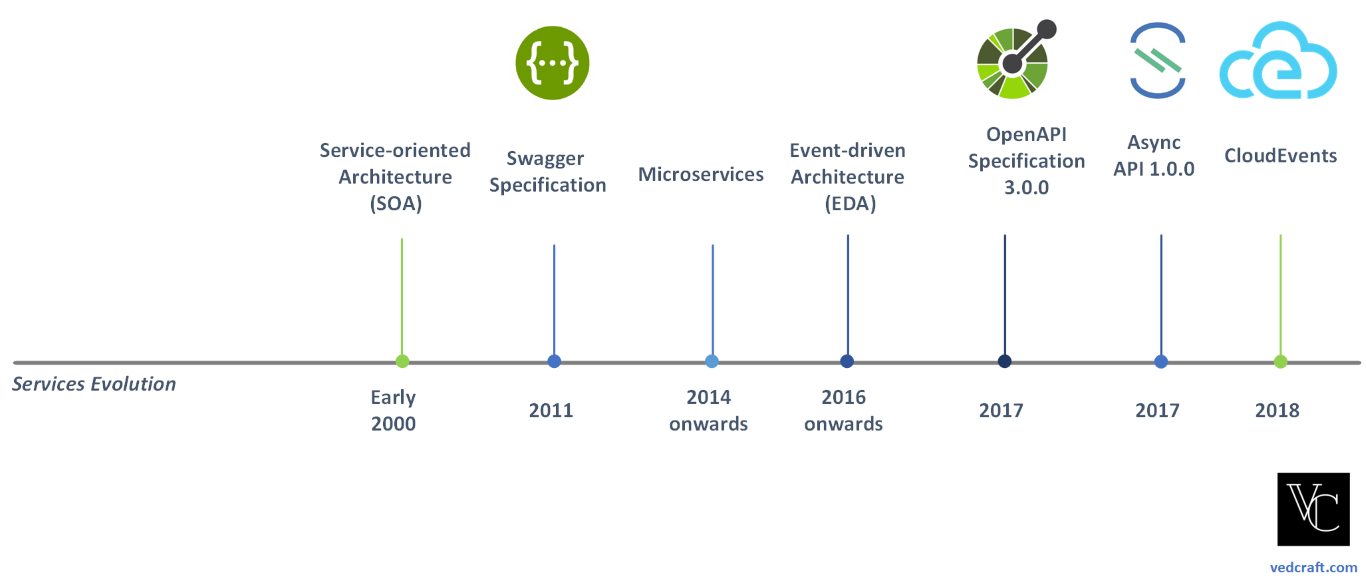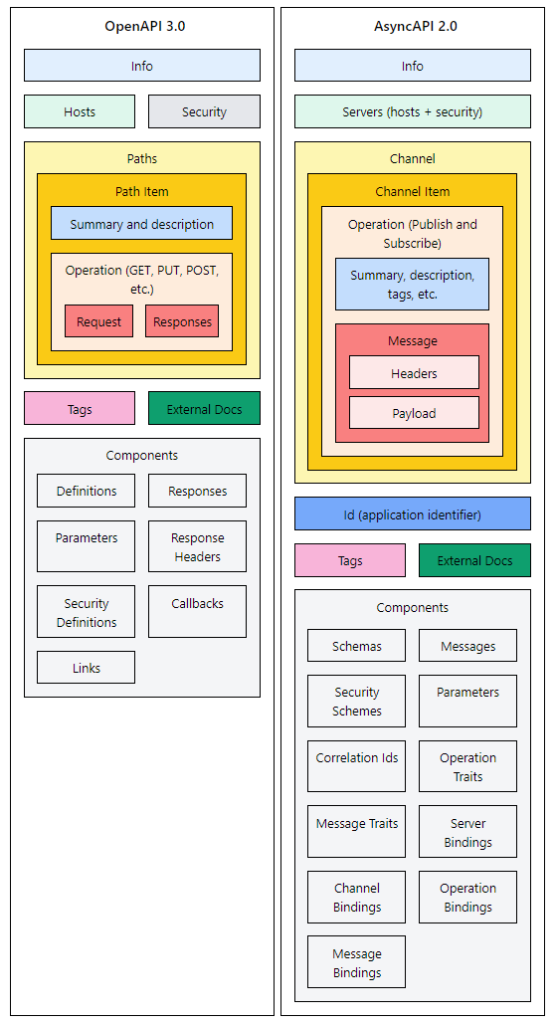With the rise of Cloud, Microservices, and Cloud-native technologies, API development is one of the key focus areas for organizations – both from an internal and external integration perspective.
OpenAPI – Standard for RESTful APIs
OpenAPI specification (originally based on Swagger 2.0) has become the de facto industry standard for HTTP APIs providing the programming-language agnostic interface. Key highlights are:
- OpenAPI can not only describe APIs based on the HTTP protocol (RESTful) but also APIs based on HTTP-like protocols like CoAP (Constrained Application Protocol) or WebSockets. It supports both YAML & JSON format.
- Promotes design-first API development, maintains single source of truth across (code & specification are synchronized), supports documentation as part of code, supports multiple IDEs, etc.
- Key advantages are automation opportunities because of machine-readable format such as API description validation & linting, data validation, document generation, code generation, mocking APIs, security analysis, etc.
- Supported by most of the API Platforms or API Management tools such as MuleSoft, ApiGee, RapidAPI, WSO2.
- Adopted by product companies from different industry sectors such as financial services – PLAID, Bloomberg or technology companies such as Ambadassor Labs (Cloud-native Kubernetes), Liferay (Digital Experience Platform).
- Key links:

Async API – Standard for asynchronous event-driven APIs
Async API has started becoming the industry standard for defining asynchronous APIs. For event-driven and microservices architecture, asynchronous communication is the need of the hour and a common standard helps to build the semantics common understanding. Key highlights are:
- An open source initiative targeted to improve the current state of Event-Driven Architectures (EDA).
- Supports both JSON & YAML as message format and AsyncAPI document is a machine-readable for event-driven API. OpenAPI goal is to work collaboratively with other standards like OpenAPI, GraphQL, and gRPC definitions.
- AsyncAPI is not a competitive specification to OpenAPI rather it is a collaborative specification. It emerged as an adaptation of the OpenAPI specification (see comparison below).
- Click here to see the list of tools supporting as Code Generators, Documentation, Mocking & Testing, Validators, etc.

Cloud Events – Specification for describing event data
CloudEvents (part of CNCF now) is relatively new to create a specification for describing event data in common formats to provide interoperability across services, platforms, and systems. Key highlights are:
- Emerging standard to support event-driven architecture focused primarily on events to decouple provider and consumer supporting interoperability between systems.
- In comparison to Async API, Cloudevents focuses on message format than API itself and gets applied to FaaS (function-as-a-service) or any system exchanging event or message with a common industry format.
- Async API and CloudEvents are not competing specifications can be used together.
- Apart from event attributes and related metadata, it also focuses on how to serialize the event in different formats (e.g. JSON) and protocols (e.g. HTTP, AMQP, Kafka).
- Supported by cloud event bus, and event-oriented solutions (including Serverless) such as Argo Events (Event-driven Workflow Automation Framework), OpenFaaS (Serverless framework to deploy event-driven functions and microservices to Kubernetes), Serverless Workflow (specification that defines a vendor-neutral and declarative workflow language), Google Cloud Eventarc (to build event-driven architectures with loosely coupled services that react to state changes), Azure Event Grid, Oracle Cloud Events, Alibaba Eventbridge, etc.
Examples
OpenAPI Example
openapi: 3.0.0
info:
description: OpenAPI Specification for the a Hello World API
version: 1.0.0
title: Hello World API
paths:
/:
get:
summary: Provides hello world message
operationId: Sends hello world message
description: Provides a simple Hello World message using GET operation
parameters:
- name: user
in: query
description: Your name.
required: false
schema:
type: string
responses:
"200":
description: Success
servers:
- url: http://api.vedcraft.com
Async API Example
asyncapi: 2.1.0
info:
title: Hello world message
version: '0.1.0'
channels:
hello:
publish:
message:
payload:
type: string
pattern: '^hello .+$'CloudEvents Message Example
{
"specversion" : "1.0",
"id" : "V123-456-789",
"source" : "https://api.vedcraft.com/helloworld",
"type" : "com.vedcraft.helloworld",
"subject" : "message",
"time" : "2021-08-30T09:05:00Z",
"datacontenttype" : "application/json",
"data" : "{\"fname\": \"ankur\", \"lname\":\"kumar\"}"
}References:



